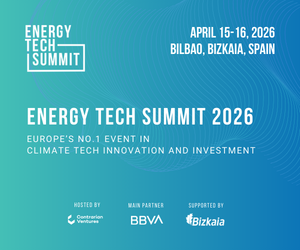Search - Search on Articles, Blogs & Tags
Total Results : 816
Realising a once-in-a-generation opportunity for a clean energy revolution
- 2021-01-04 23:02:17
- Junior Isles
The G20’s stimulus packages are weighted to support legacy energy systems; missing the opportunity to create jobs and accelerate the transition towards flexible, renewable-powered economies.
By Sushil Purohit, President, Wärtsilä Energy
Britain sets new record for daily wind power generation
- 2020-12-29 07:42:21.382327
- David Flin
Over half Britain’s daily electricity came from wind power on 28 December for the first time on record.
US Department of Energy releases energy storage grand challenge roadmap
- 2020-12-22 07:11:33
- David Flin
The US Department of Energy (DOE) has released the Energy Storage Grand Challenge Roadmap, its first comprehensive energy storage strategy.
GE calls for accelerated deployment of renewables and gas power to drive faster decarbonisation
- 2020-12-15 13:04:26
- Junior Isles
Building on its commitment to carbon neutrality in its operations by 2030 and announced intention to exit the new-build coal power market, GE has shared its position that the accelerated and strategic deployment of both renewable energy and gas power can make substantial progress in combatting climate change in the near-term, while securing a path to a lower-carbon emitting world in the future.
Report says wind and solar are cheapest options for new power supply in Australia
- 2020-12-11 08:44:47.277116
- David Flin
The Commonwealth Scientific and Industrial Research Organisation (CSIRO) of Australia has issued a report on calculated integration costs of new-build power in the country, which concludes that wind and solar are the cheapest sources.
Italy announces special tariffs for shared renewable energy generation
- 2020-12-09 07:48:27.872199
- David Flin
Italy has launched a new incentive programme to encourage the local generation and sharing of renewable energy.
KenGen unveils renewable energy project pipeline
- 2020-11-25 06:53:25.774142
- David Flin
Kenya Electricity Generating Company *KenGen) has announced an extensive renewable energy project pipeline focused on supporting the Government’s economic growth agenda.
Lumani Energy launches European renewable investment platform
- 2020-10-11 14:49:41
- Junior Isles
Lumani Energy has launched a new European renewable investment platform for supporting renewable energy pioneers.
NTPC forms renewable energy subsidiary
- 2020-10-09 07:55:03.138470
- David Flin
India’s state-run power producer NTPC has announced that it has formed NTPC Renewable Energy, a wholly-owned subsidiary, to focus on its green energy business.
Plug Power to buy renewable energy to power green hydrogen production facility
- 2020-09-25 07:37:24.029317
- David Flin
Plug Power and Brookfield Renewable have entered into an agreement for Plug Power to buy renewable electricity from Brookfield Renewable to facilitate Plug Power’s production of approximately 10 tons of 100 per cent green liquid hydrogen per day.











